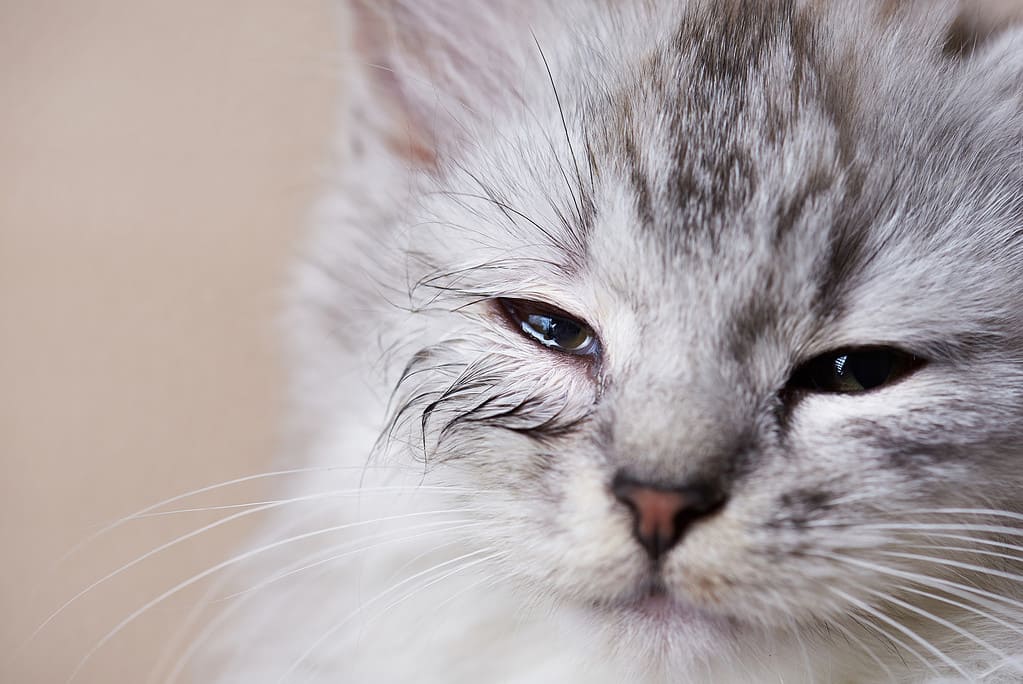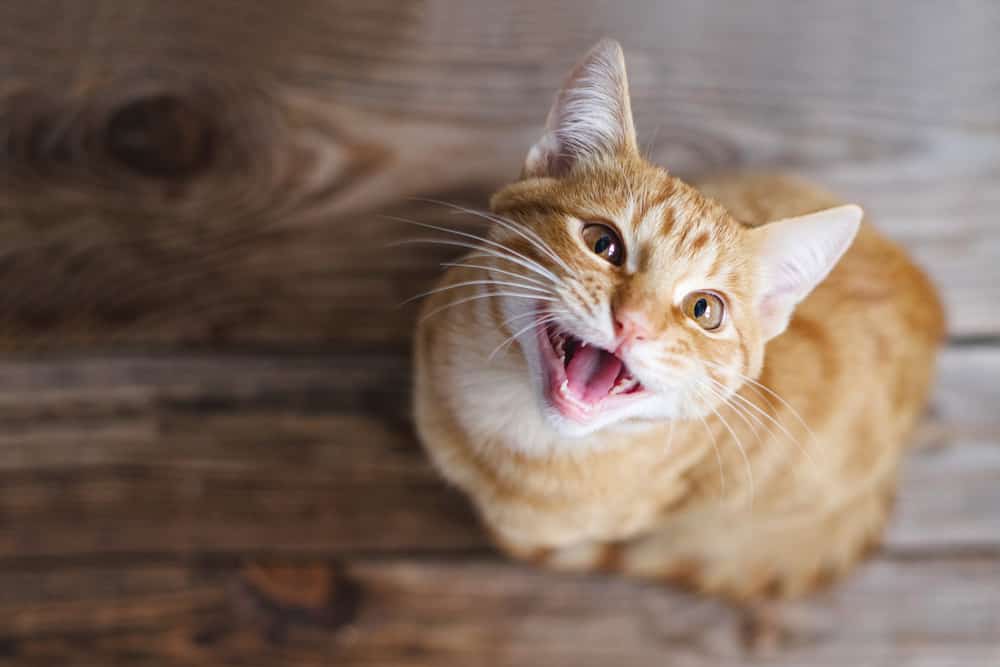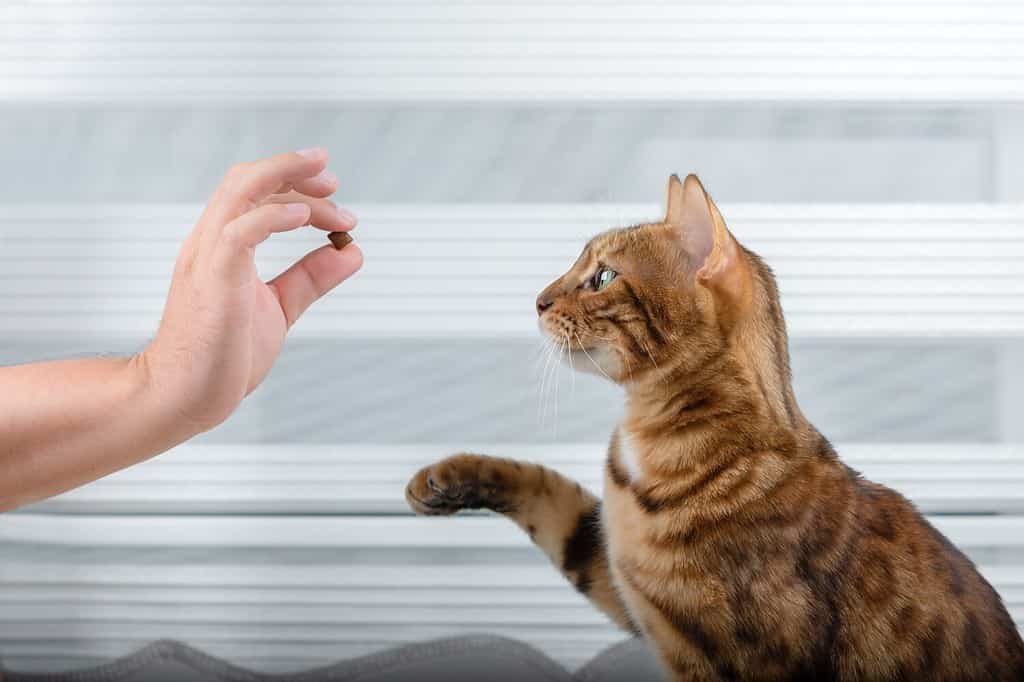When your cat isn’t feeling well, the energy of your home changes. You’d do anything for your mischievous yet loving furball and sometimes that means the use of a new supplement. You’ve heard of CBD but you’re still not sure about it. The right dosage is crucial as well as understanding how it can help or hurt. Understand the CBD dosage chart for cats and learn about the benefits, risks, and side effects of this supplement!
When Do Cats Need CBD?
For Pain Management
When your cat is experiencing short-term pain following an injury or surgery, that pain is typically managed with a prescription medication provided by your veterinarian. However, cats also deal with chronic pain, which can require a long-term pain management solution.
While prescription medication tends to be on the table for different conditions, it also has its own set of uncomfortable side effects. In these cases, you could work with your veterinarian to create a pain management treatment plan that incorporates the use of CBD.

Cats look to you for support when they need help, be it a behavioral issue or physical ailment.
©dimarik/iStock via Getty Images
For Reducing Inflammation
While research on CBD specifically with cats is still lacking, there is a plethora of anecdotal evidence that points to its benefits when it comes to reducing inflammation. Health conditions are exacerbated by inflammation in your cat’s body and by helping to reduce the inflammation, your cat can experience relief from other symptoms.
For Managing Seizure Disorders
When CBD first came on the market, it was specialized for seizure disorders, specifically epilepsy. There was extensive research conducted on CBD’s effect on humans with seizure disorders and it has since been suggested for pets, including cats, as well. If your cat suffers from a seizure disorder, you can work with your veterinarian to consider whether CBD may be appropriate to introduce.
For Nausea Relief and Stimulation of Appetite
When your cat experiences nausea, it can be hard to get them to eat. If a cat isn’t eating, they can lose weight rapidly and become ill. When not even their favorite wet food or treats smell appetizing to them, CBD can help to reduce nausea and stimulate your cat’s appetite. This can help get them to a healthy weight and ensure they are receiving the appropriate nutrients their bodies need.
For Reducing Anxiety and Anxiety-Related Behaviors
An anxious cat is an unhappy cat. The symptoms of anxiety can manifest in various ways. Sometimes, they affect your cat’s health, and sometimes your cat starts displaying destructive behaviors around the home. Anxiety occurs in cats for many reasons, including separation anxiety as well as anxiety when there’s a new member of the family, be it a pet or another human. CBD can help to quell these spikes of nervousness and discomfort, which allows your cat to acclimate to a new environment or to your absence for periods of time.

CBD can help to quell the symptoms of anxiety in cats, including related destructive behaviors.
©savitskaya iryna/Shutterstock.com
Side Effects of CBD on Cats
Getting the CBD dose just right may take a little bit of experimentation. Until you get that down, you may notice some side effects. However, it is also possible that CBD does not settle well in your cat’s system so be sure to keep an eye on them after you introduce CBD for the very first time.
Behavioral Changes
You may notice some behavioral changes after administering CBD. Sometimes, this looks like restlessness. Maybe your cat starts pacing back and forth acting unusually. If this occurs, ensure you provide your pet with fresh water and let the symptoms subside. You may also need to discontinue use of the product and speak to your veterinarian about possible alternatives.
Drowsiness
Some cats don’t get restless and instead display more of a drowsy mood. This can be a helpful side effect if you are concerned about your cat’s anxiety and want to reduce destructive behavior while you’re away from the home. They may calm down and rest while you go to work or otherwise leave the home for periods of time. However, your cat may be receiving too high a dose of CBD if the only response is sleep and not just a mellow mood.
Gastrointestinal Upset
Because CBD requires a carrier oil to settle into your cat’s system, sometimes this oil can cause gastrointestinal upset. This means your cat may experience nausea, vomiting, or may have changes to the consistency of their stool.
Signs of CBD Overdose/Allergies in Cats
Generally, CBD is well tolerated in cats. Even if they receive much too high a dose, the symptoms may be uncomfortable for a few hours but the chance that they overdose on CBD is quite low. Nevertheless, if you feel that your cat has ingested too much CBD, reach out to your local animal hospital, urgent pet care office, or your regular veterinarian for assistance.
Know beforehand how much your cat has ingested so that you can provide these details. If you can’t get a hold of anyone, you can try calling the following:
- Pet Poison Helpline: 855-764-7661
- ASPCA Animal Poison Control Center: 888-426-4435
Although your cat may have ingested too much CBD, it’s not a good idea to try and get them to vomit. Wait until you receive specific instructions from a professional.

If your cat ingests too much CBD, contact your veterinarian right away.
©Ozge Emir/iStock via Getty Images
Risks to Consider
When you purchase CBD from a reputable supplier, the risks are quite low. However, not every company operates with ethics, so it’s best to purchase from a company that offers transparency. This means you can look up reports that state exactly what is in the product you’re interested in purchasing. CBD comes in different forms, including oils and treats. Well-known companies with strong reputations are clear about the CBD content, the third-party lab testing they send their products through, and all the ingredients they use.
When Is CBD Not an Option for Your Cat?
CBD may not be an option for your cat if your cat is already taking certain medications. The combination can result in adverse reactions, so be sure to ask your veterinarian before administering CBD. Additionally, your cat may not be able to tolerate CBD and may only experience negative side effects. If that’s the case, discontinue use.
Instead, work with your veterinarian to find an alternative to assist with the condition you are trying to ameliorate. Ultimately, CBD is not a product you should administer on your own terms. Although it is available for purchase without a prescription, it’s best that you coordinate care for your cat directly with your veterinarian who intimately understands your past medical history and can offer advice and support as you embark on a CBD journey.
CBD for Cats Dosage Chart
One of the most popular CBD products for cats comes in the form of a tincture. You can add this to their food or water for easy dosing. Below is a CBD dosage chart that considers a standard dose based on tincture size. This dose helps with appetite, reduced inflammation, pain alleviation, and general health.
| Cat Weight | 150 mg Tincture | 300 mg Tincture | 600 mg Tincture |
|---|---|---|---|
| 5 pounds | 0.125 mL | 0.0625 mL | 0.0625 mL |
| 10 pounds | 0.25 mL | 0.125 mL | 0.125 mL |
| 20 pounds | 0.5 mL | 0.25 mL | 0.25 mL |
Each product may differ in terms of dosage so it’s best to follow the manufacturer’s recommendations for the most accurate dose.
Alternatives to CBD for Cats
Since CBD is used for a variety of reasons, the alternatives differ depending on the condition your cat is experiencing.
Supplements
If CBD is not a match for your cat for some reason, you still have the option of incorporating other cat-specific supplements. For example, if your cat is dealing with joint pain, you may consider supplements that incorporate glucosamine and chondroitin. Additionally, if your cat is experiencing anxiety, you may consider a cat-specific supplement that incorporates L-theanine so they can enjoy a sense of relaxation.
Training
While supplements may help to reduce your cat’s anxiety or destructive behaviors when you’re away from home, some training can also help with reducing those symptoms. If possible, work with an animal behaviorist. This is ideal to help you put a plan together that incorporates positive reinforcement and gives you a clear idea of what to expect, including a realistic timeline for behavioral changes.

Training with the use of positive reinforcement can help your cat with behavioral issues.
©Svetlana Rey/Shutterstock.com
Enrichment
Along with training a cat, you can also enrich their environment. Cats may get bored, and they may get anxious. But when their environment provides them with plenty to do, they keep occupied. This means they need a range of different types of toys, including puzzles and unique treat dispensers. Even if you’re not home, there are still interactive toys you can leave for your cat to enjoy so that they never have to just sit and wait for your return.
Homeopathy
You might be inclined to explore some homeopathic remedies, just be sure to connect with your veterinarian to make sure that anything you’re using is safe for your cat.
Prescription Medications
Whether it’s pain management or something else, prescription medications may just be something you have to work with through your cat’s lifespan. Even when there are uncomfortable side effects, additional medications can help to mitigate those symptoms. Work with a veterinarian you trust to exhaust all options and determine which treatment plan is the best course for your beloved kitty.
How to Treat CBD Overdose in Cats
Step 1: Call Your Vet
If you suspect your cat has ingested too much CBD (like they got into a CBD cat treat bag and treated themselves to one too many), contact your vet right away. Let them know what’s going on, and what type of product they ingested. This way, they can provide you with instructions on how to respond.
Step 2: Watch Your Cat
Keep an eye on your cat so that you can note any behavioral changes or health effects. See if they’re suddenly lethargic, if they’re having trouble keeping their coordination, or if they are nauseous and vomiting or having bouts of diarrhea. All of this is going to help your veterinarian make a determination and help your cat.
Step 3: Ease Your Cat’s Discomfort
Make sure your cat has access to water and as stated before, don’t try to induce vomiting. Try to keep your cat contained and comfortable so that their anxiety does not peak. You may want to keep them closed in a bedroom they most enjoy so that you can keep a close eye on them while your veterinarian gets back to you or offers guidance.
Step 4: Follow Doctor’s Orders
Ultimately, your veterinarian is the one who’s going to treat a CBD overdose in your cat. They are going to determine which treatment plan to follow after they assess your kitty. Sometimes, this may mean that your cat receives IV fluids to rehydrate but this is a determination made by your cat’s vet.
Conclusion
CBD has the potential to help cats in different ways, ranging from behavioral issues to pain management, and even seizure disorders. When provided with just the right dosage, they can benefit greatly. However, without knowing the right dose for your cat, your cat may experience some side effects. You can work on adjusting the dose so that they get the maximum benefit and the least number of uncomfortable symptoms.
If your cat simply can’t tolerate CBD, however, you may need to discontinue the use of the product. We can’t stress enough that it’s important for you to work with your veterinarian when administering CBD to your cat so that you have the proper advice and support as you work together to make your cat as comfortable as possible and keep them as healthy as can be.
The photo featured at the top of this post is © Lightcube/Shutterstock.com
Thank you for reading! Have some feedback for us? Contact the AZ Animals editorial team.







